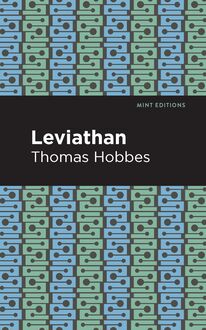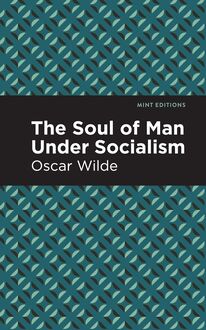-
 Univers
Univers
-
 Ebooks
Ebooks
-
 Livres audio
Livres audio
-
 Presse
Presse
-
 Podcasts
Podcasts
-
 BD
BD
-
 Documents
Documents
-
- Cours
- Révisions
- Ressources pédagogiques
- Sciences de l’éducation
- Manuels scolaires
- Langues
- Travaux de classe
- Annales de BEP
- Etudes supérieures
- Maternelle et primaire
- Fiches de lecture
- Orientation scolaire
- Méthodologie
- Corrigés de devoir
- Annales d’examens et concours
- Annales du bac
- Annales du brevet
- Rapports de stage
La lecture à portée de main
Vous pourrez modifier la taille du texte de cet ouvrage
Découvre YouScribe en t'inscrivant gratuitement
Je m'inscrisDécouvre YouScribe en t'inscrivant gratuitement
Je m'inscrisEn savoir plus
Vous pourrez modifier la taille du texte de cet ouvrage
En savoir plus

Description
After her father suddenly passes away, Perley Kelso is left partial ownership of a mill. However, since it was socially unacceptable for a woman to own property or have a company, Perley is kept as a silent partner. Conflicted about her role in the company, Perley struggles to find her own ambition. Despite her limited responsibilities at the mill, Perley is curious about the daily operations, so she decides to visit the mill. There, she meets Sip, a worker. Coming from opposite backgrounds and different classes, the two women initially doubt they have anything in common. But as they unite and grow closer together, Sip and Perley realize that they have similar goals, and are dedicated to helping the other achieve them. After Sip shares her perspective on the dangers and unjust working conditions of the mill workers, Perley becomes devoted to reform, earning the trust of the workers as she treats them with compassion. Though, even as each woman finds her aspiration, the societal standard requires something different from them. When Perley and Sip both receive marriage proposals, the two friends consider how marriage would affect their lives, and the consequences that would ensue if they decline the offers. Featuring topics of women’s right to work, industrialization, and domestic life, The Silent Partner by Elizabeth Stuart Phelps is clever and invites critical reflection. Through the realistic portrayal of 19th century working class, Phelps’ provides modern day readers with an intimate perspective on American Industrialization and the sexism ingrained in societal norms. With compelling characters and bold drama, The Silent Partner remains to be both thrilling and insightful, upholding Phelps’ legacy of advocacy and literary genius. This edition of The Silent Partner by Elizabeth Stuart Phelps features an eye-catching new cover design and is presented in a font that is both modern and readable. With these accommodations, this edition is accessible and appealing to contemporary audiences, restoring The Silent Partner to modern standards while preserving the original intelligence and impact of Elizabeth Stuart Phelps’ work.
Sujets
Informations
| Publié par | Mint Editions |
| Date de parution | 21 mai 2021 |
| Nombre de lectures | 0 |
| EAN13 | 9781513284934 |
| Langue | English |
| Poids de l'ouvrage | 1 Mo |
Informations légales : prix de location à la page 0,0450€. Cette information est donnée uniquement à titre indicatif conformément à la législation en vigueur.
Extrait
The Silent Partner
Elizabeth Stuart Phelps
The Silent Partner was first published in 1899.
This edition published by Mint Editions 2021.
ISBN 9781513279916 | E-ISBN 9781513284934
Published by Mint Editions®
minteditionbooks .com
Publishing Director: Jennifer Newens
Design & Production: Rachel Lopez Metzger
Project Manager: Micaela Clark
Typesetting: Westchester Publishing Services
C ONTENTS A N OTE F ROM THE A UTHOR I. A CROSS THE G ULF II. T HE S LIPPERY P ATH III. A G AME OF C HESS IV. T HE S TONE H OUSE V. B UB M ELL VI. M OULDINGS AND B RICKS VII. C HECKMATE VIII. A T ROUBLESOME C HARACTER IX. A F ANCY C ASE X. E CONOMICAL XI. G OING I NTO S OCIETY XII. M APLE L EAVES XIII. A F EVERISH P ATIENT XIV. S WEPT AND G ARNISHED XV. A P REACHER AND A S ERMON
A N OTE F ROM THE A UTHOR
In the compilation of the facts which go to form this fiction, it seems desirable to say that I believe I have neither overlooked nor libelled those intelligent manufacturers who have expended much Christian ingenuity, with much remarkable success, in ameliorating the condition of factory operatives, and in blunting the edge of those misapprehensions and disaffections which exist between capital and labor, between employer and employed, between ease and toil, between millions and mills, the world over.
Had Christian ingenuity been generally synonymous with the conduct of manufacturing corporations, I should have found no occasion for the writing of this book.
I believe that a wide-spread ignorance exists among us regarding the abuses of our factory system, more especially, but not exclusively, as exhibited in many of the country mills.
I desire it to be understood that every alarming sign and every painful statement which I have given in these pages concerning the condition of the manufacturing districts could be matched with far less cheerful reading, and with far more pungent perplexities, from the pages of the Reports of the Massachusetts Bureau of Statistics of Labor, to which, with other documents of a kindred nature, and to the personal assistance of friends who have “testified that they have seen,” I am deeply in debt for the ribs of my story.
E. S. P.
A NDOVER , December, 1870
I
A CROSS THE G ULF
The rainiest nights, like the rainiest lives, are by no means the saddest.
This occurred to Miss Kelso one January night, not many winters ago. Though, to be exact, it was rather the weather than the simile which occurred to her. The weather may happen to anybody, and so serves a purpose like photography and weddings. Reflections upon life you run your chance of at twenty-three.
If, in addition to the circumstance of being twenty-three, you are the daughter of a gentleman manufacturer, and a resident of Boston, it would hardly appear that you require the ceremony of an introduction. A pansy-bed in the sun would be a difficult subject of classification. Undoubtedly, pages might with ease be occupied in treating of Miss Kelso’s genealogy. Her descent from the Pilgrims could be indisputably proved. It would be possible to ascertain whether or not she cried at her mother’s funeral. Thrilling details of her life in the nursery are upon record. Her first composition is still legible. Indeed, three chapters, at the least, might be so profitably employed in conveying to the intelligence of the most far-sighted reader the remotest intimation of Miss Kelso’s existence, that one feels compelled into an apology to high art for presenting her in three lines and a northeaster.
Perhaps it should be added that this young lady was engaged to be married to her father’s junior partner, and that she was sitting in her father’s library, with her eyes closed, at the time when the weather occurred to her; sitting, as she had been sitting all the opaque, gray afternoon, in a crimson chair by a crimson fire, a creamy profile and a creamy hand lifted and cut between the two foci of color. The profile had a level, generous chin. The hand had—rings.
There are people who never do anything that is not worth watching; they cannot eat an apple or button a shoe in an unnoticeable, unsuggestive manner. If they undertake to be awkward, they do it so symbolically that you feel in debt to them for it. Miss Kelso may have been one of these indexical persons; at any rate, there was something in her simple act of sitting before a fire, in her manner of shielding her eyes from the warmth to which her figure was languidly abandoned, which to a posture-fancier would have been very expressive.
She had noticed in an idle way, swathed to the brain in her folds of heat and color, that the chromatic run of drops upon a window, duly deadened by drawn damask, and adapted nicely to certain conditions of a cannel blaze, had a pleasant sound. Accurately, she had not found herself to be the possessor of another thought since dinner; she had dined at three.
It had been a long storm, but Miss Kelso had found no occasion to dampen the sole of her delicate sandals in the little puddles that dotted the freestone steps and drained pavement. It had been a cold storm, but the library held, as a library should, the tints and scents of June. It had been a dismal storm; but what of that? Miss Kelso was young, well, in love, and—Miss Kelso. Given the problem, Be miserable, she would have folded her hands there by her fire, like a puzzled snow-flake in a gorgeous poppy, and sighed, “But I do not understand!”
To be sure, her father was out of town, and she had mislaid the score of La Grande Duchesse ,—undesirable circumstances, both, but not without their compensations. For the placid pleasantness of five o’clock paternal society, she had the rich, irregular delights of solitude in a handsome house,—a dream, a doubt, a daring fancy that human society would snap, an odd hope pellmell upon the heels of an extraordinary fear, snatches of things, the mental chaos of a liberated prisoner. Isolation in elegance is not apt to be productive of thought, however, as I intimated.
Opposed to the loss of La Duchesse would be the pleasure of making Maverick look for it. Miss Kelso took a keen, appreciative enjoyment in having a lazy lover; he gave her something to do; he was an occupation in himself. She had indeed a weakness for an occupation; suffered passions of superfluous life; at the Cape she rebelled because Providence had not created her a bluefisher; in Paris she would make muslin flowers, and learn the métier tomorrow.
This was piquant in her; her plighted husband found himself entertained by it always; he folded her two hands like sheets of ricepaper over his own, with an easy smile.
The weather occurred to the young lady about six o’clock in the form of a query: Was it worth while to go out tonight? She cultivated an objection to Don Giovanni in the rain,—and it always rained on Giovanni ; Maverick could talk Brignoli to Mrs. Silver, and hold a fan for Fly, as well without her; she happened to find herself more interested in an arm-chair than in anything else in the world, and slippers were the solution of the problem of life. Was it worth while?
This was one of those vital questions which require immediate motives for a settlement, and of immediate motives Miss Kelso possessed very few. Indeed, it was as yet unanswered in her own mind, when the silver handle of her carriagedoor had shut with a little shine like a smile upon her, and Fly’s voice, like boiling candy, bubbled at her from the front seat.
Maverick had called; there had been a whiff of pleasant wet air in her face; and, after all, life and patent springs are much alike in doors or out.
Miss Kelso sank languidly back into the perfumed cushions; the close doors and windows shut in their thick sweetness; the broken lights of the street dropped in, and Maverick sat beside her.
“You have had your carriage re-scented, Perley, I’m sure,” said Fly, who was just enough at home with Perley to say it.
“From Harris’s,—yes.”
“Santalina, unless I am quite mistaken?”
T HIS , SOFTLY , FROM M RS . S ILVER ; M RS . S ILVER was apt to speak very softly.
“I was tired to death of heliotrope,” said Perley, with a weary motion of her well-shaped head; “it clings so. There was some trouble, I believe, to take it out; new stuffing and covering. But I think it pays.”
“Indeed, yes, richly.”
“It always pays to take trouble for sachet , I think,” said Fly, sententiously.
“Perley never makes a mistake in a perfume,”—that came, of course, from Maverick.
“Perley never did make a mistake in a perfume,” observed Mrs. Silver, in the mild motherly manner which she had acquired from frequently matronizing Perley. “Never from the day Burt made the blunder of tuberoses for her poor mother. The child Aung them out of the casket herself. She was six years old the day before. It was a gratification to me when Burt went out of fashion.”
Perley, it may be presumed, feeling always some awkwardness at the mention of a dead parent for whom propriety required her to mourn, and in connection with whose faint memory she could not, do the best she might, acquire an unhappiness, made no reply, and sachet and Mrs. Silver dropped into silence together. Fly broke it, in her ready way: “So kind in you to send for us, Perley!”
“It was quite proper,” said Perley.
She did not think of anything else to say, and fell, as her santalina and her chaperone had fallen, a little noticeably out of the conversation.
Fly and Maverick Hayle did the talking. Mrs. Silver dropped in now and then properly.
Perley listened lazily to the three voices; one sometimes hears very noticeable voices from very unnoticeable people; these were distinct of note as a triplet; idle, soft, and sweet—sweetly, softly idle. She played accompaniments with them to her amused fancy.
The triplet rounded into a chord presently, and made her a little sleepy. Sensitive only to an occasional flat or sharp of Brignoli or Kellogg, she fell with half-closed eyes into t
-
 Univers
Univers
-
 Ebooks
Ebooks
-
 Livres audio
Livres audio
-
 Presse
Presse
-
 Podcasts
Podcasts
-
 BD
BD
-
 Documents
Documents
-
Jeunesse
-
Littérature
-
Ressources professionnelles
-
Santé et bien-être
-
Savoirs
-
Education
-
Loisirs et hobbies
-
Art, musique et cinéma
-
Actualité et débat de société
-
Jeunesse
-
Littérature
-
Ressources professionnelles
-
Santé et bien-être
-
Savoirs
-
Education
-
Loisirs et hobbies
-
Art, musique et cinéma
-
Actualité et débat de société
-
Actualités
-
Lifestyle
-
Presse jeunesse
-
Presse professionnelle
-
Pratique
-
Presse sportive
-
Presse internationale
-
Culture & Médias
-
Action et Aventures
-
Science-fiction et Fantasy
-
Société
-
Jeunesse
-
Littérature
-
Ressources professionnelles
-
Santé et bien-être
-
Savoirs
-
Education
-
Loisirs et hobbies
-
Art, musique et cinéma
-
Actualité et débat de société
- Cours
- Révisions
- Ressources pédagogiques
- Sciences de l’éducation
- Manuels scolaires
- Langues
- Travaux de classe
- Annales de BEP
- Etudes supérieures
- Maternelle et primaire
- Fiches de lecture
- Orientation scolaire
- Méthodologie
- Corrigés de devoir
- Annales d’examens et concours
- Annales du bac
- Annales du brevet
- Rapports de stage




















